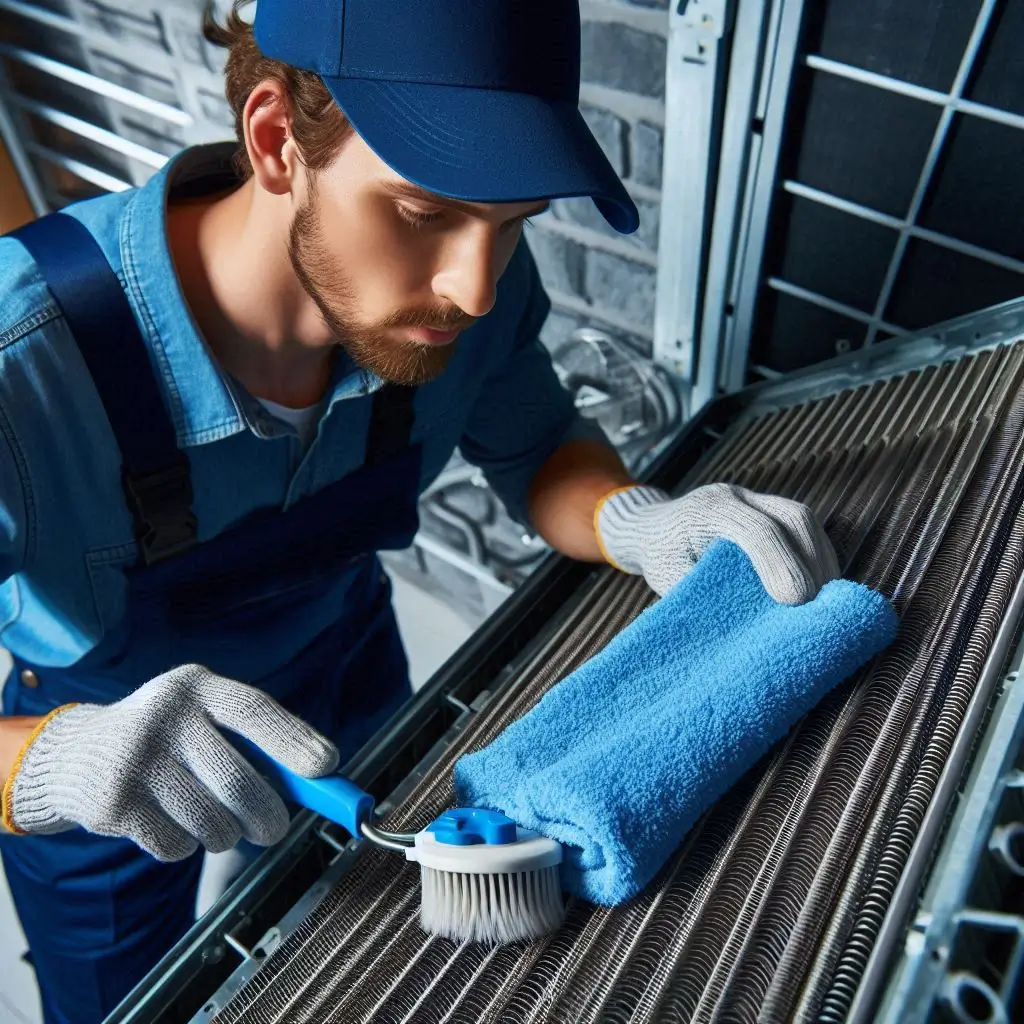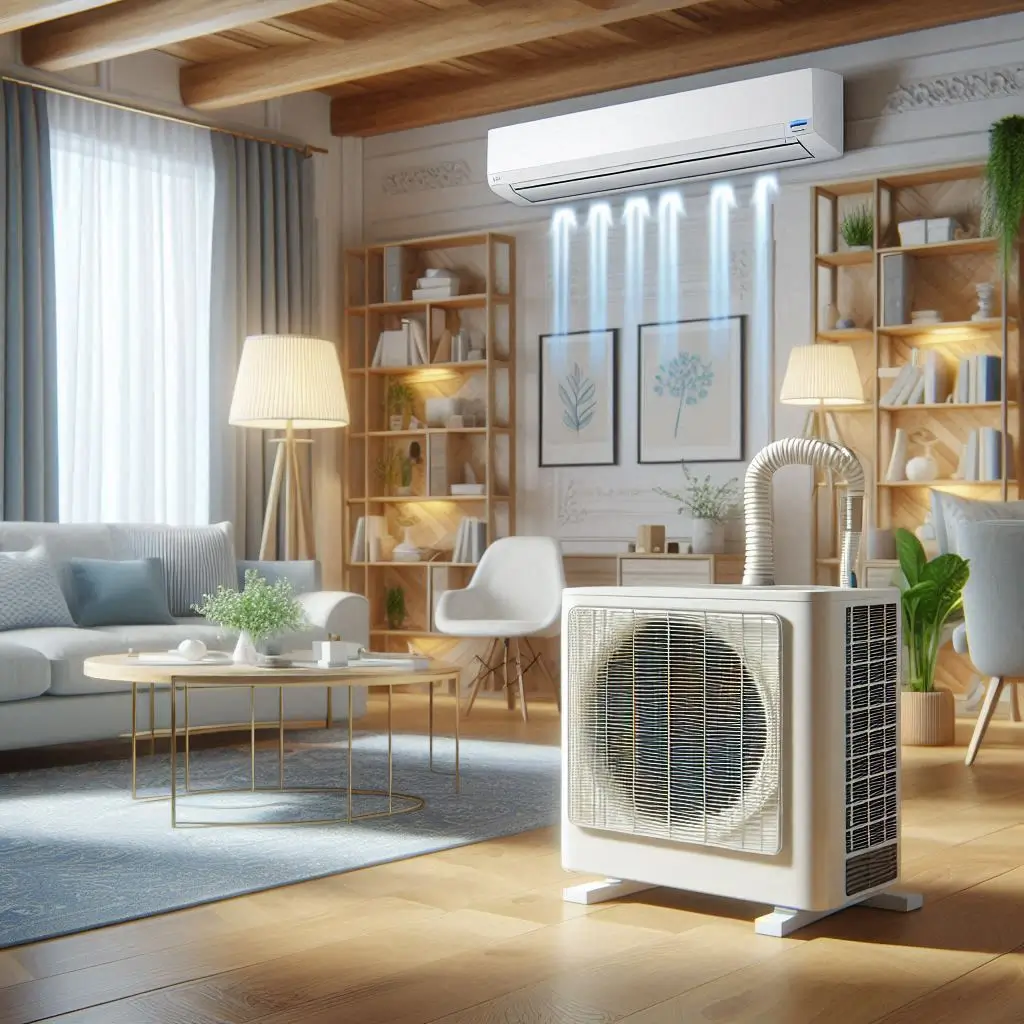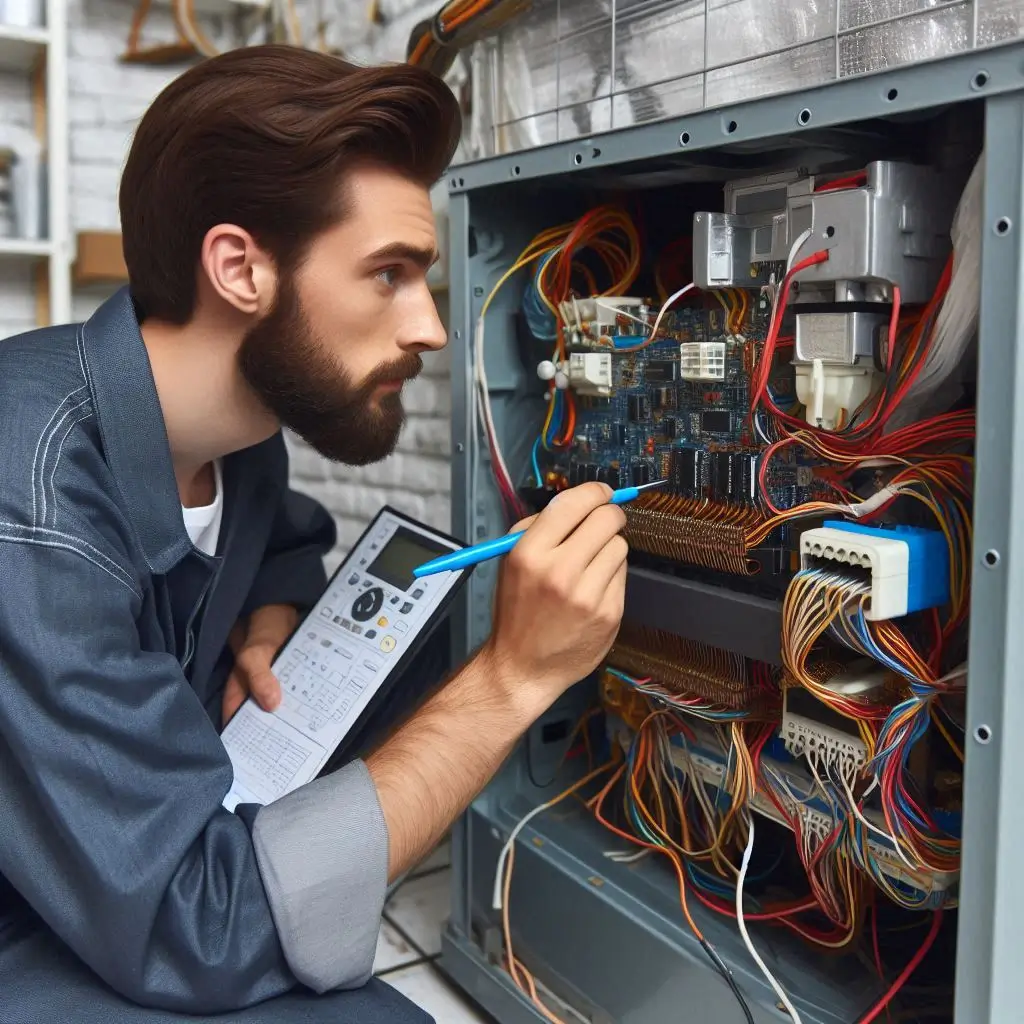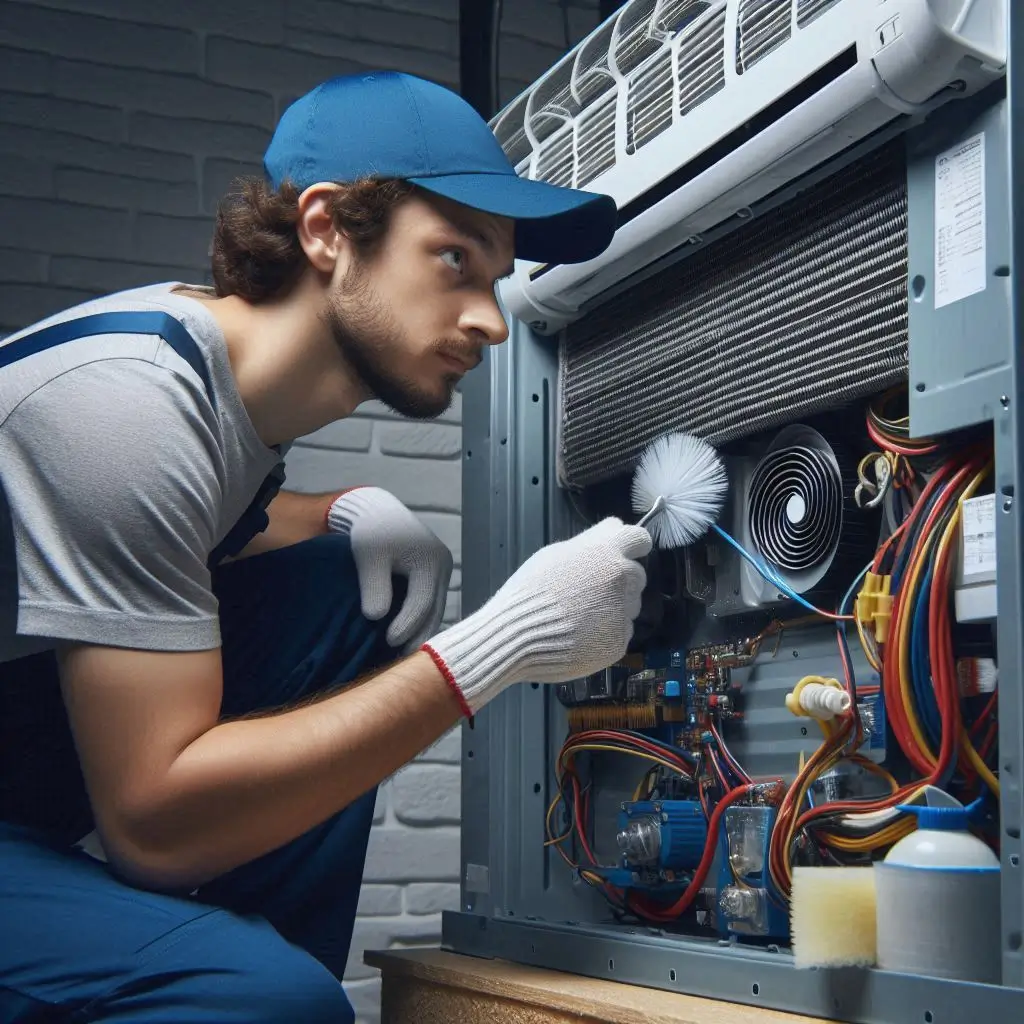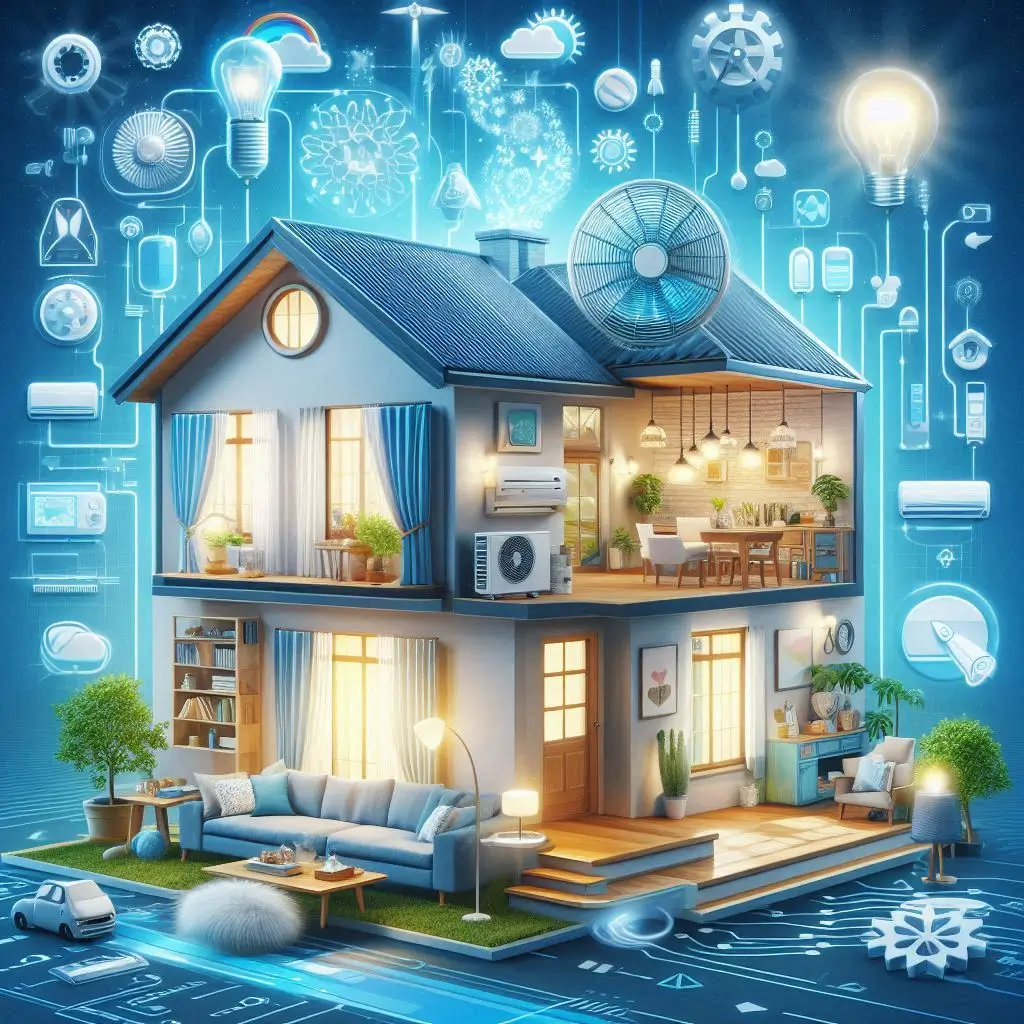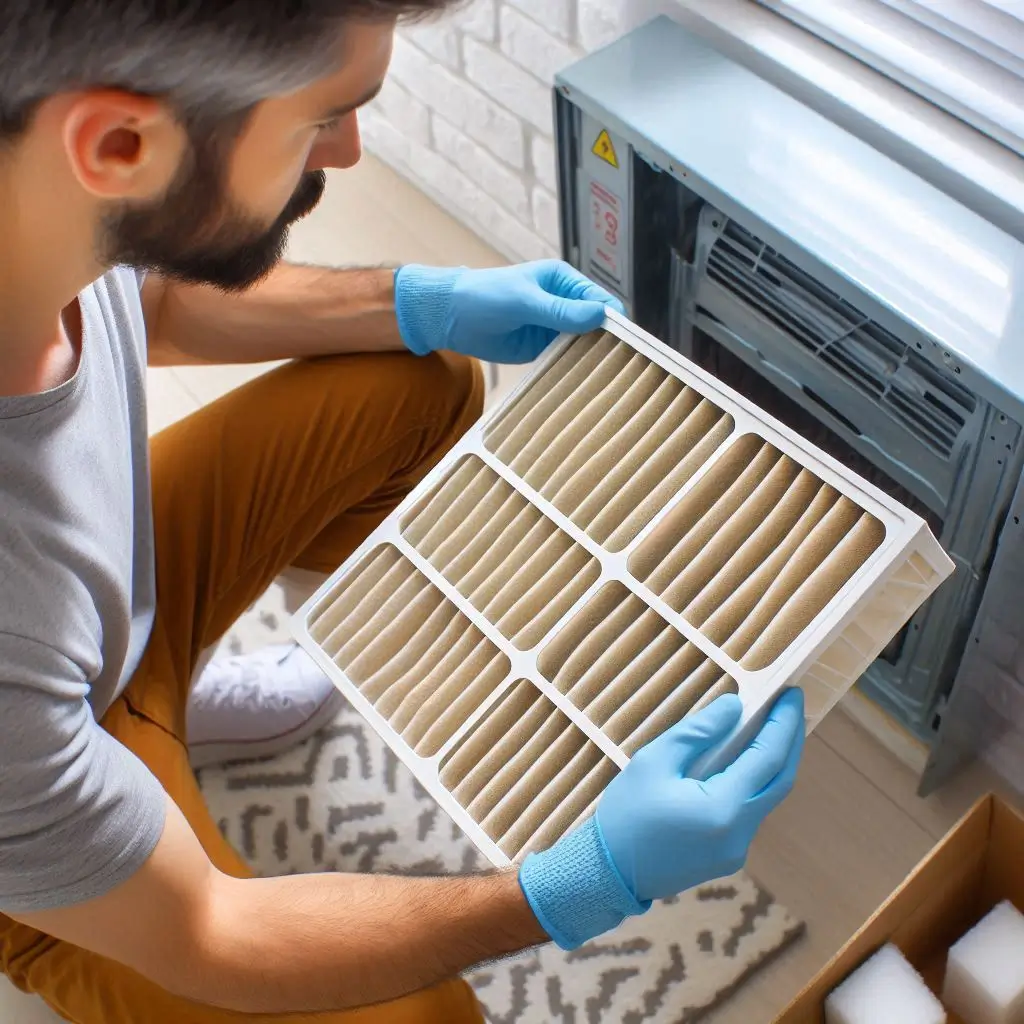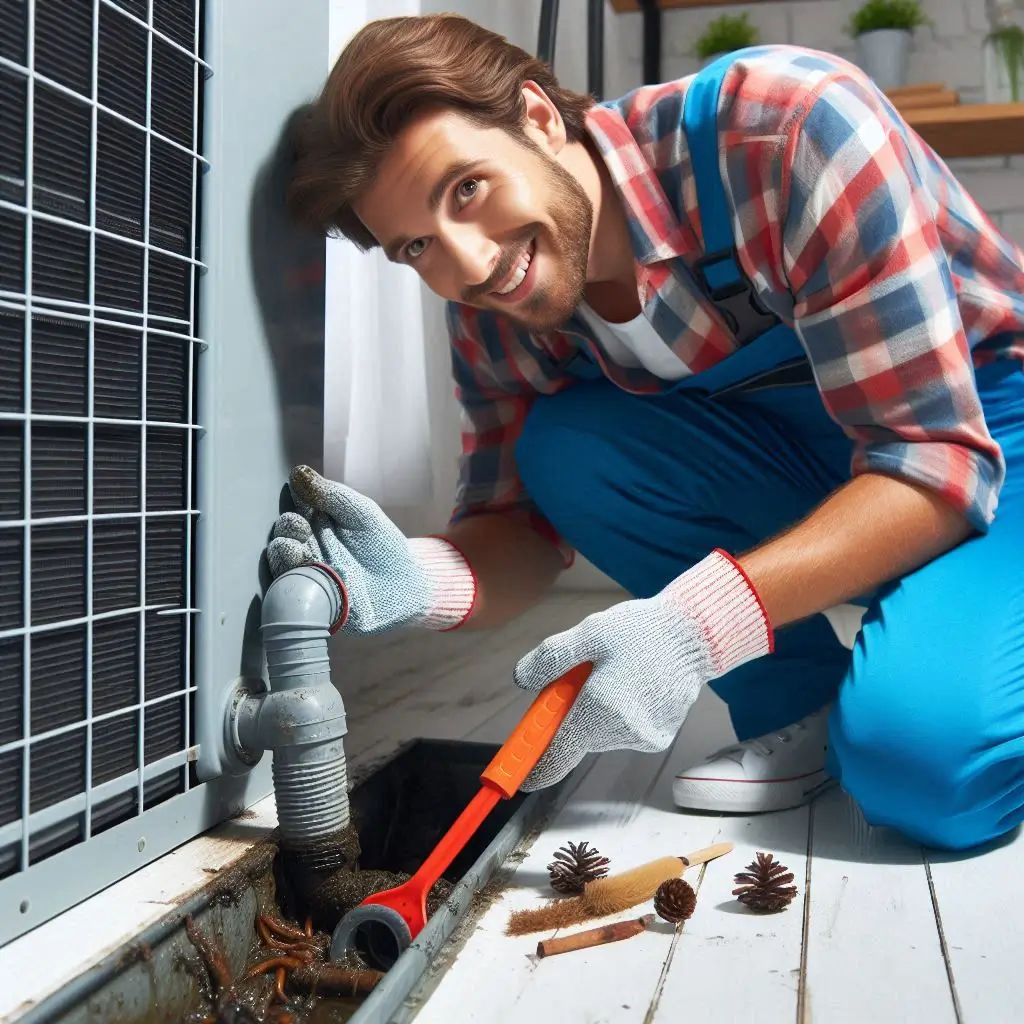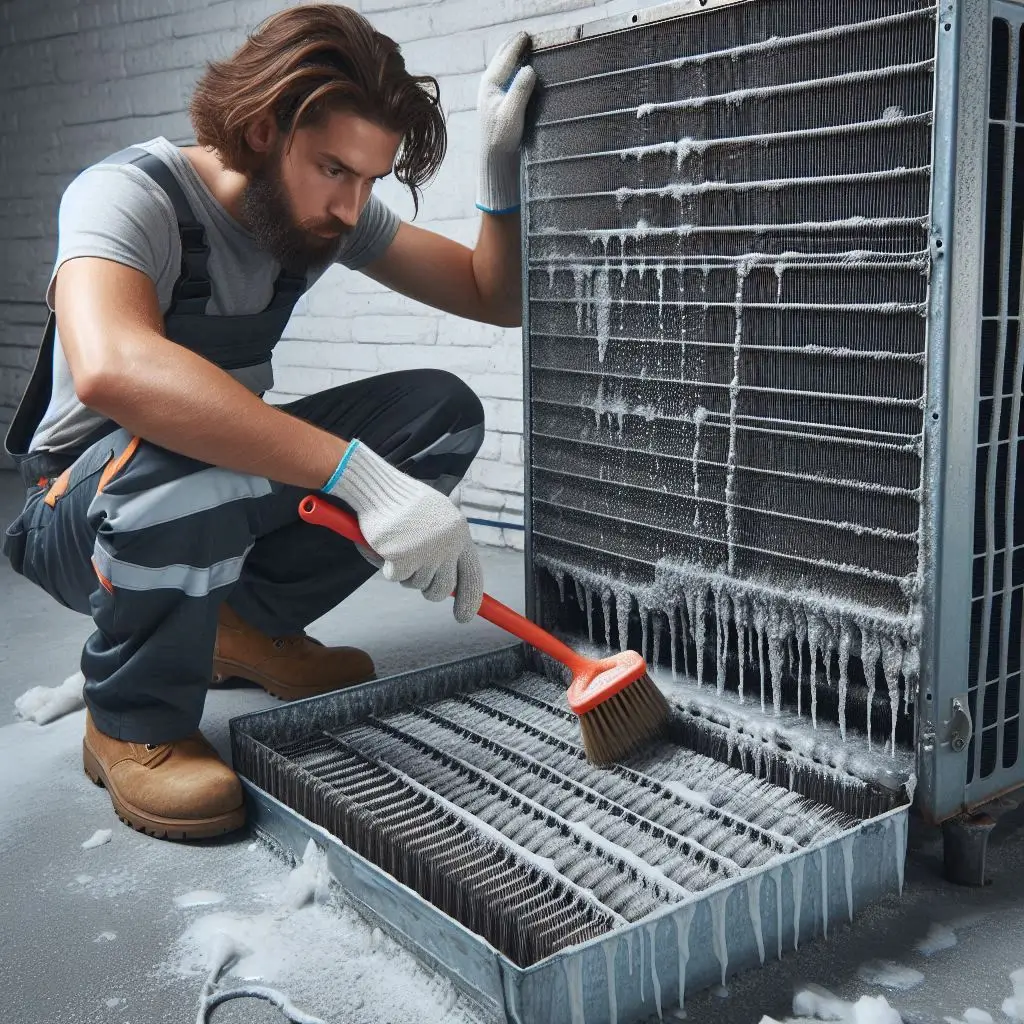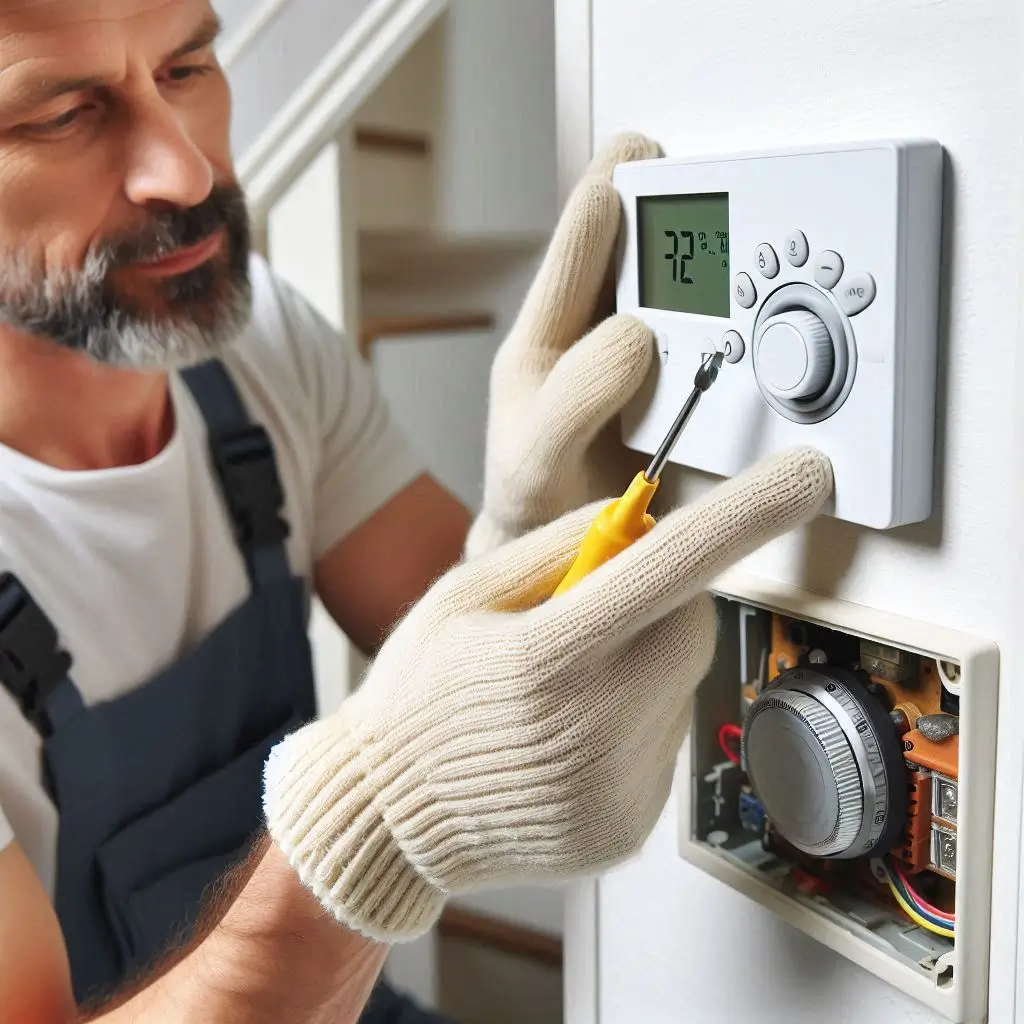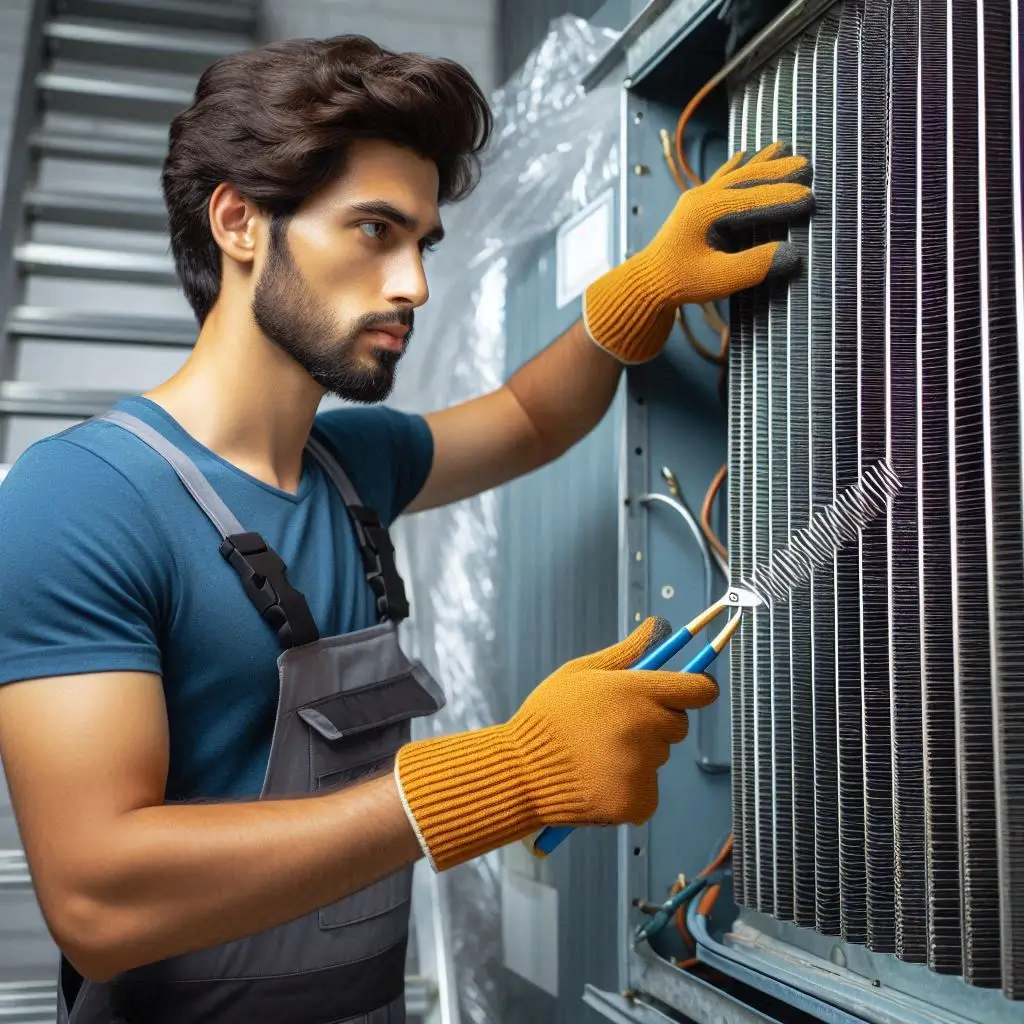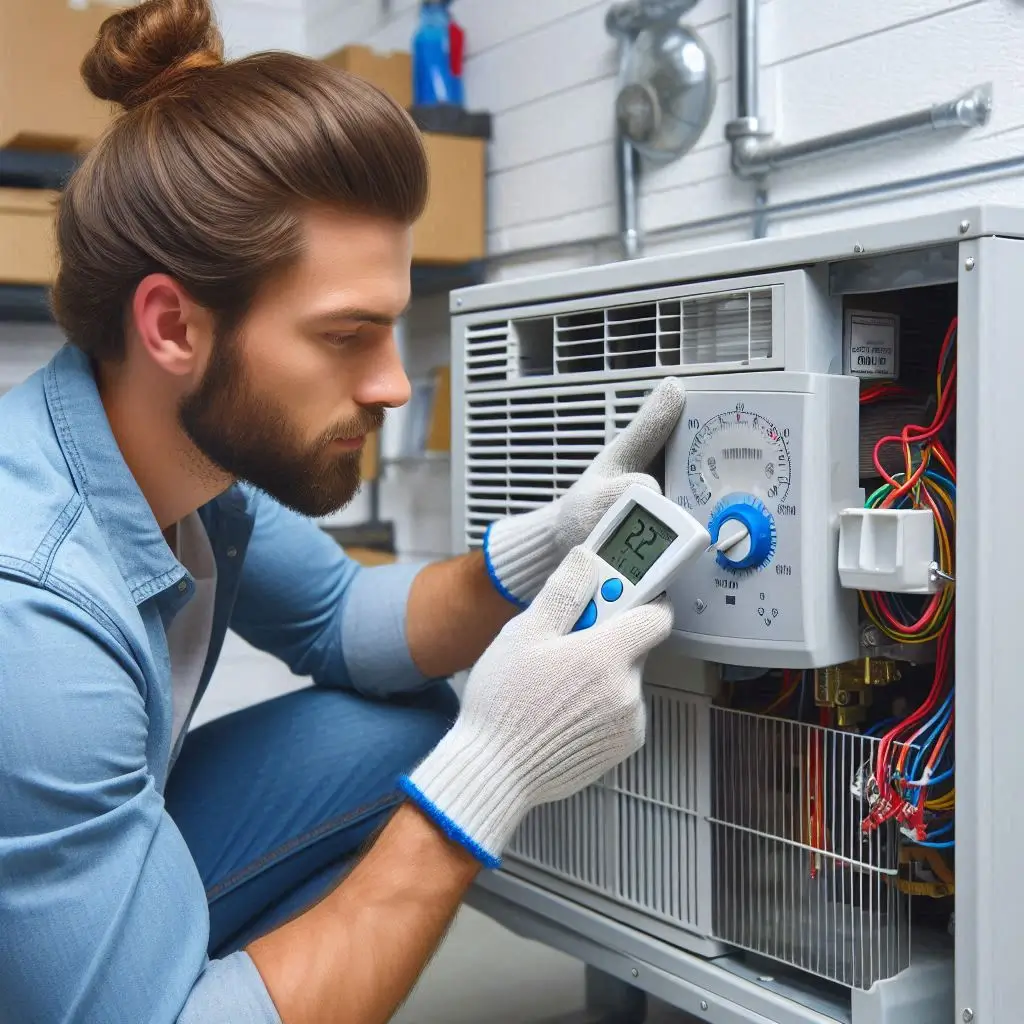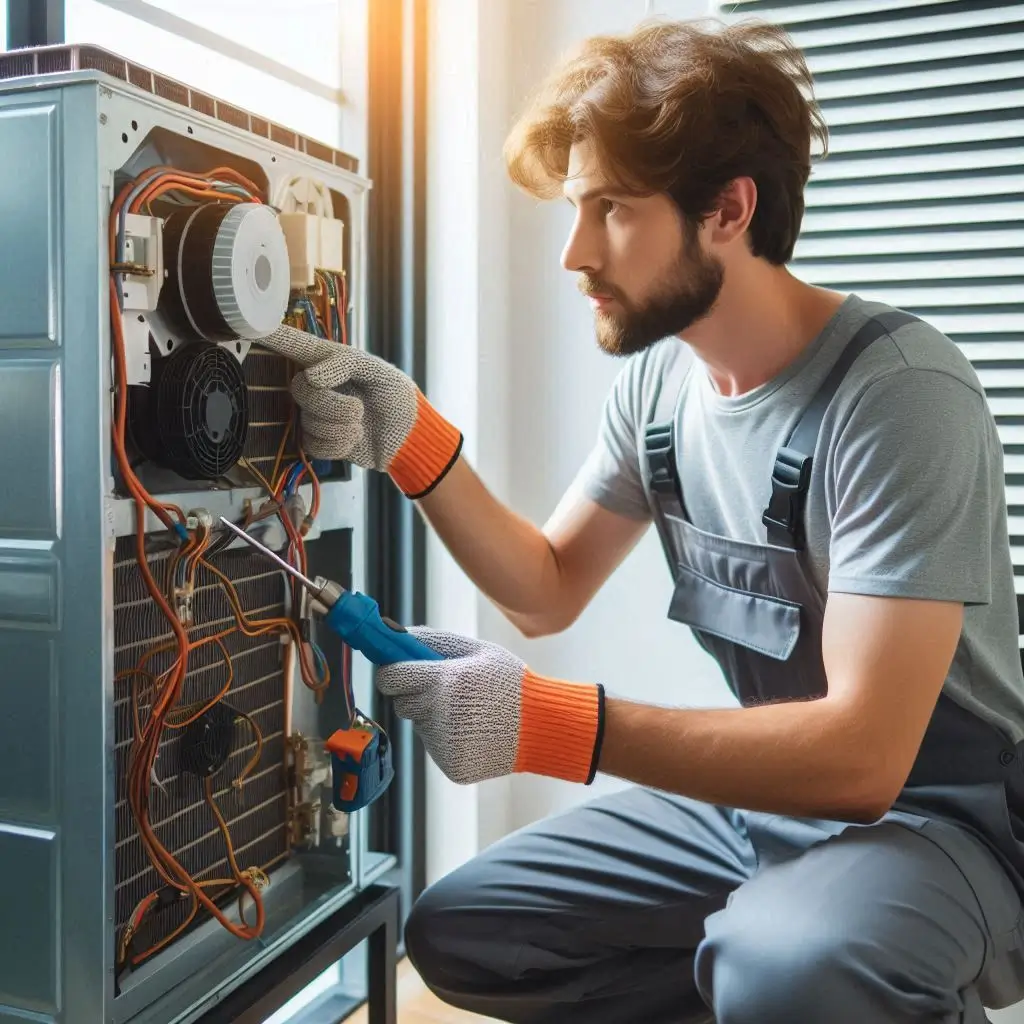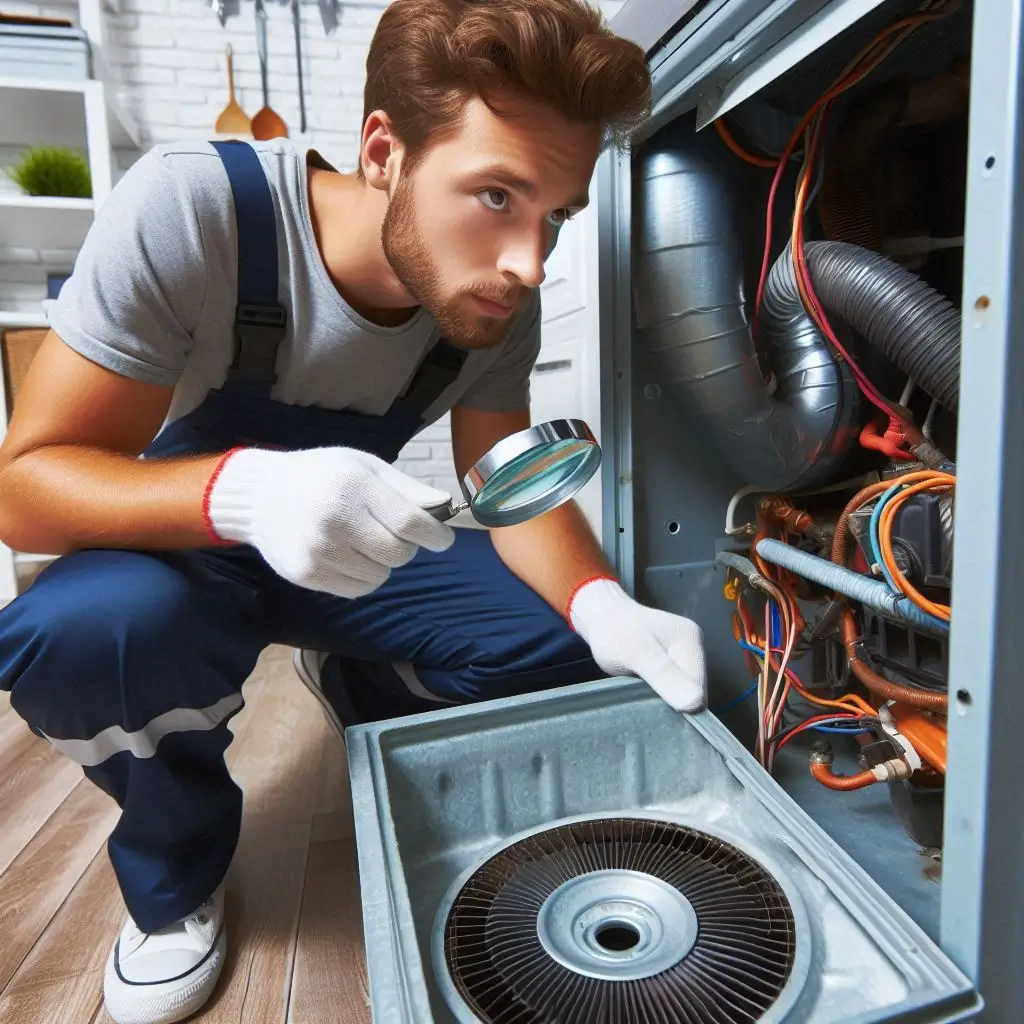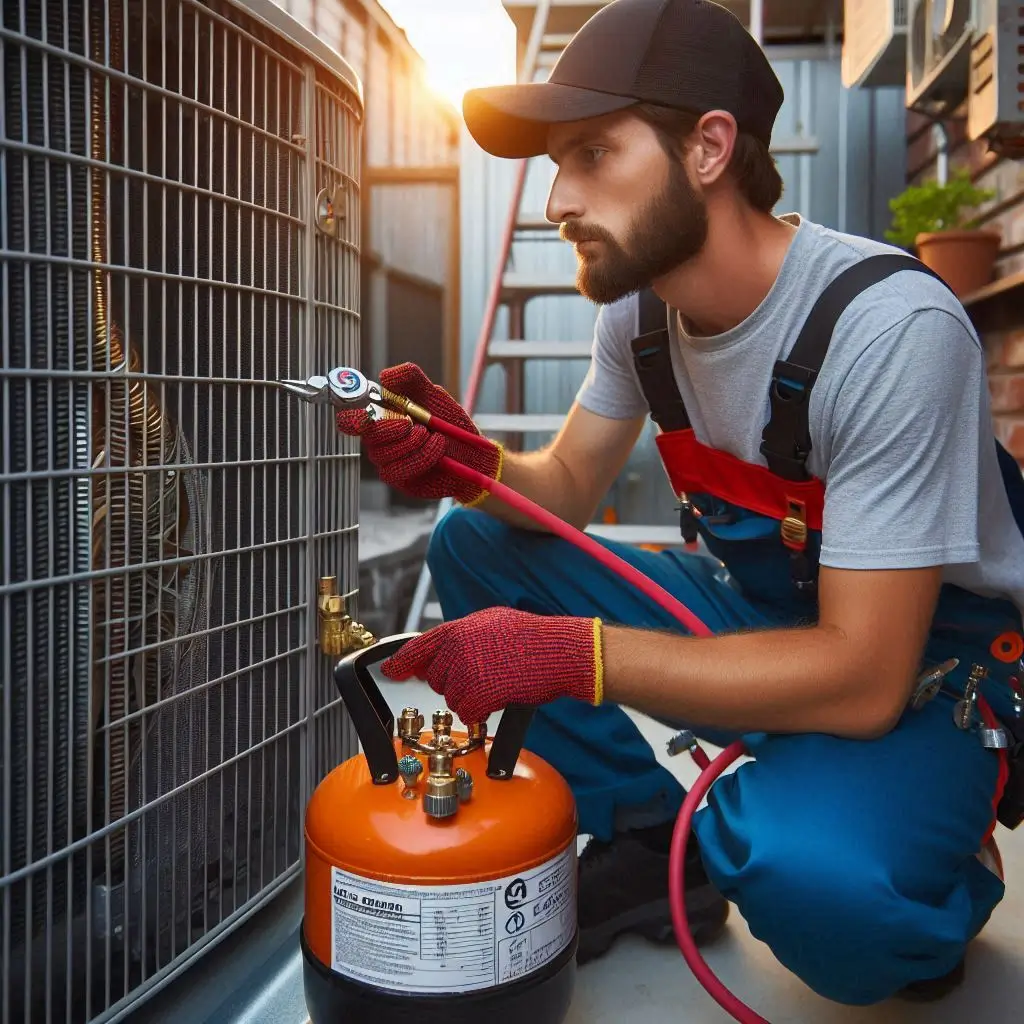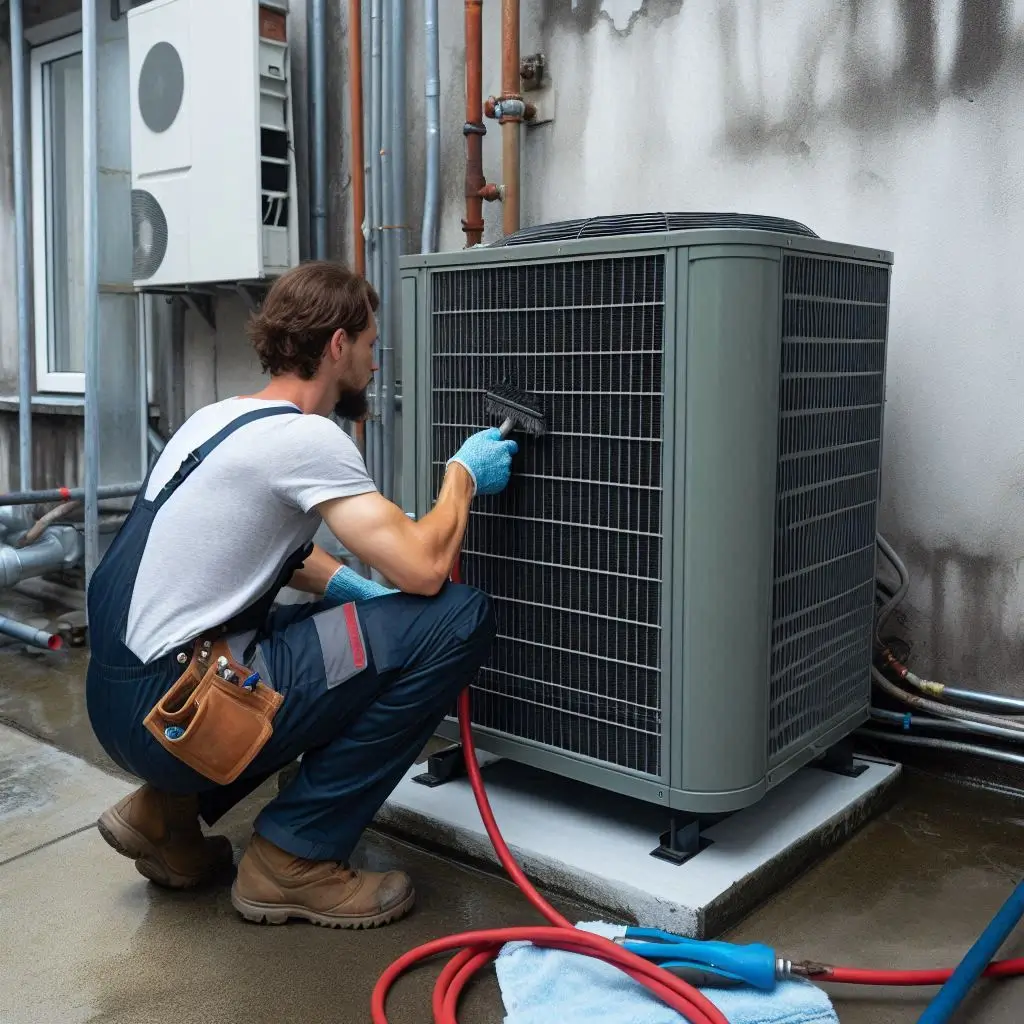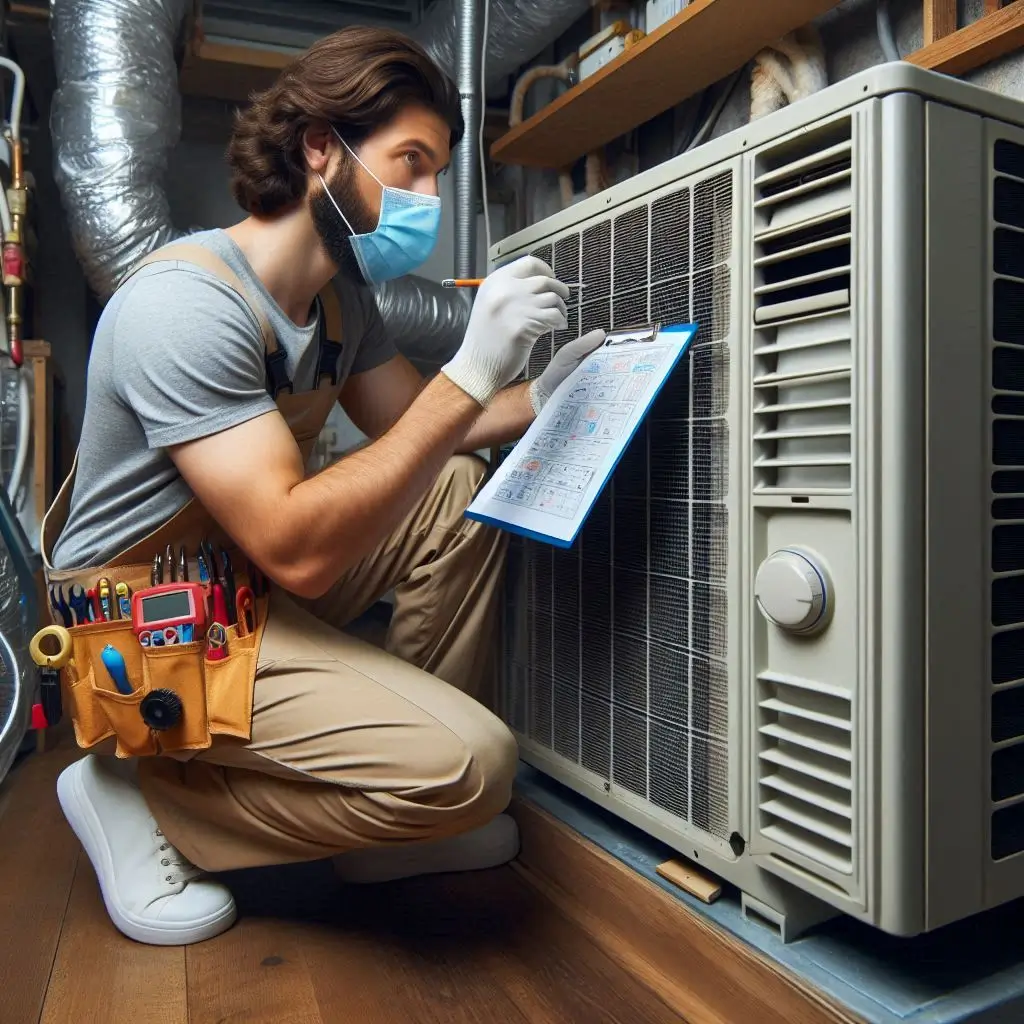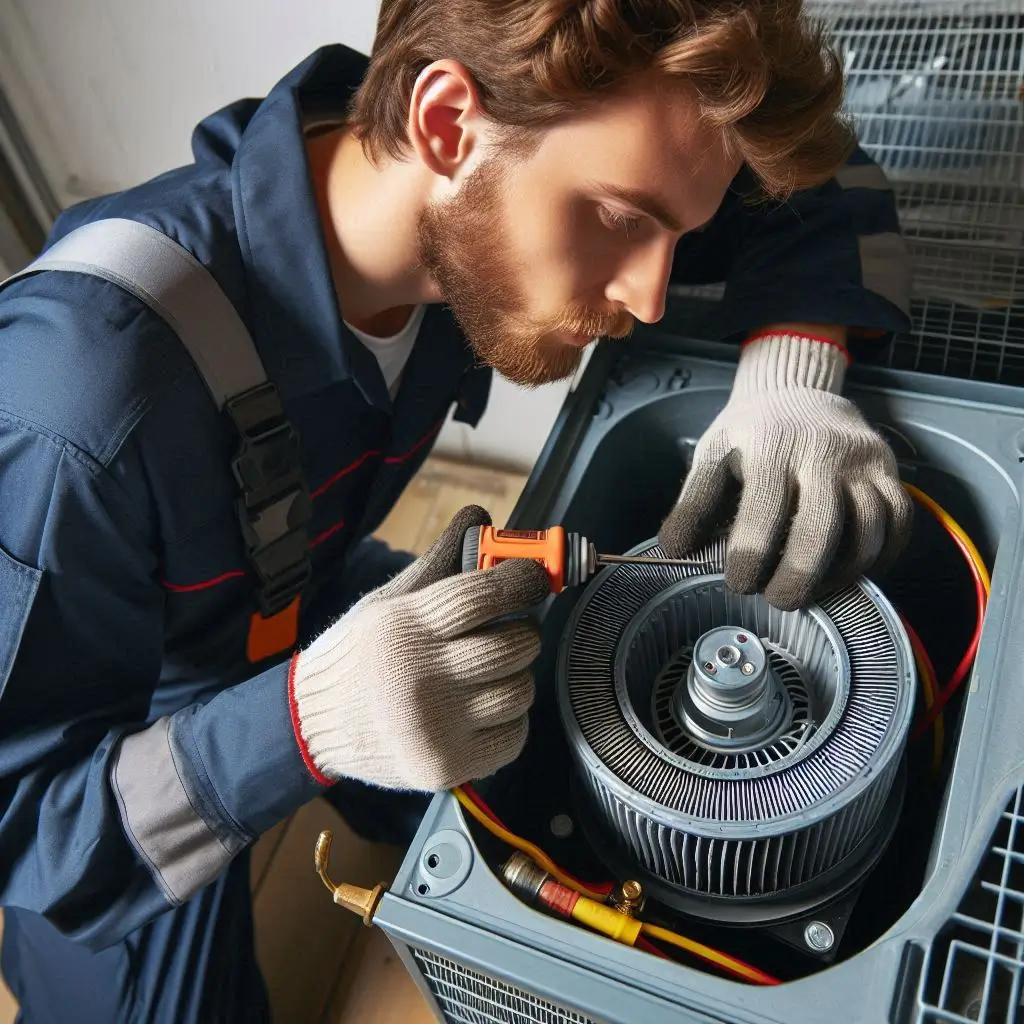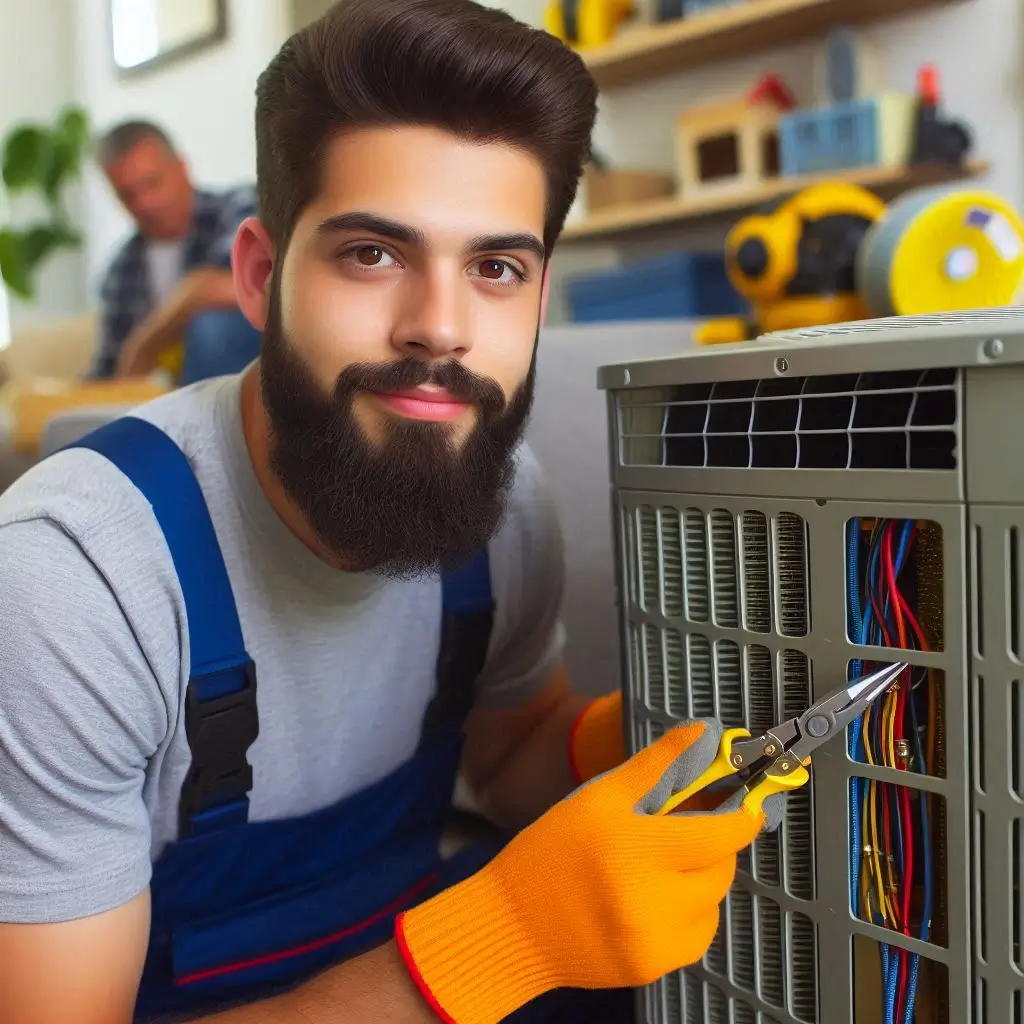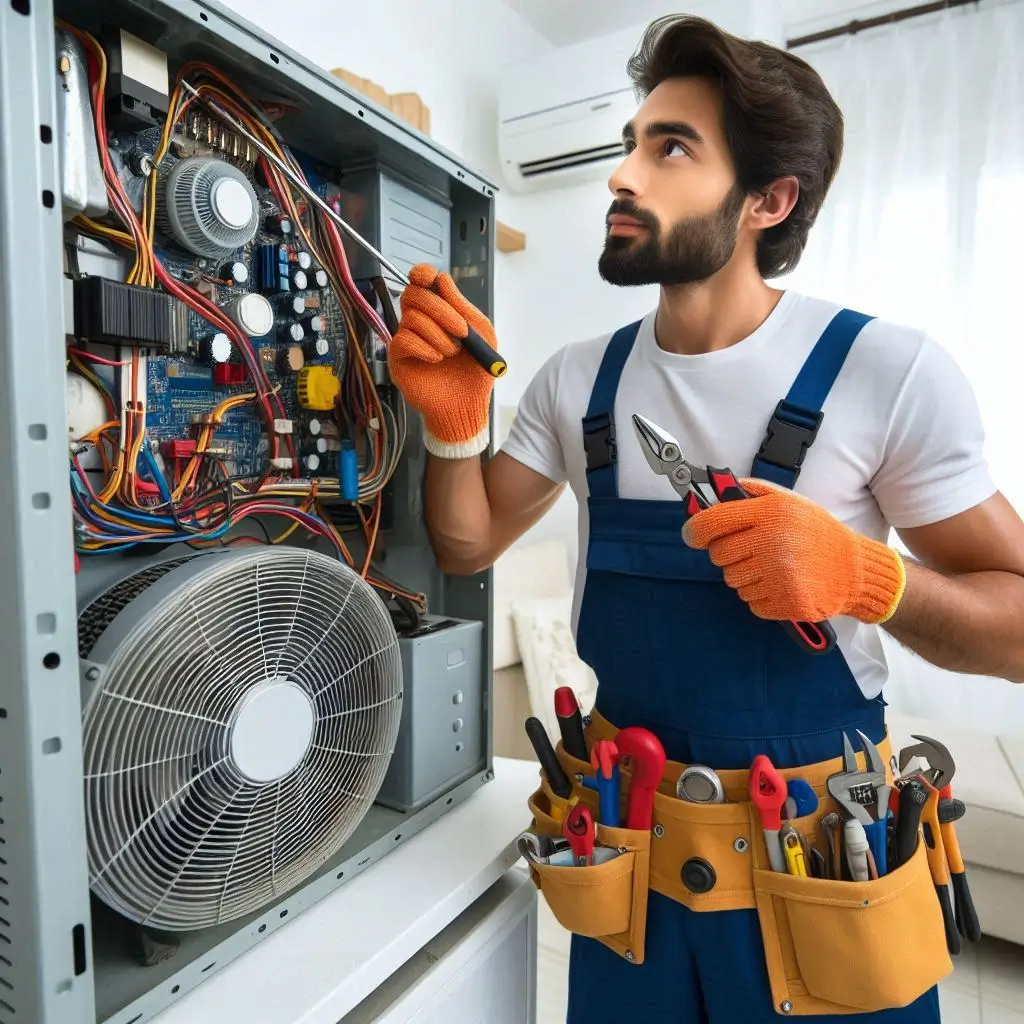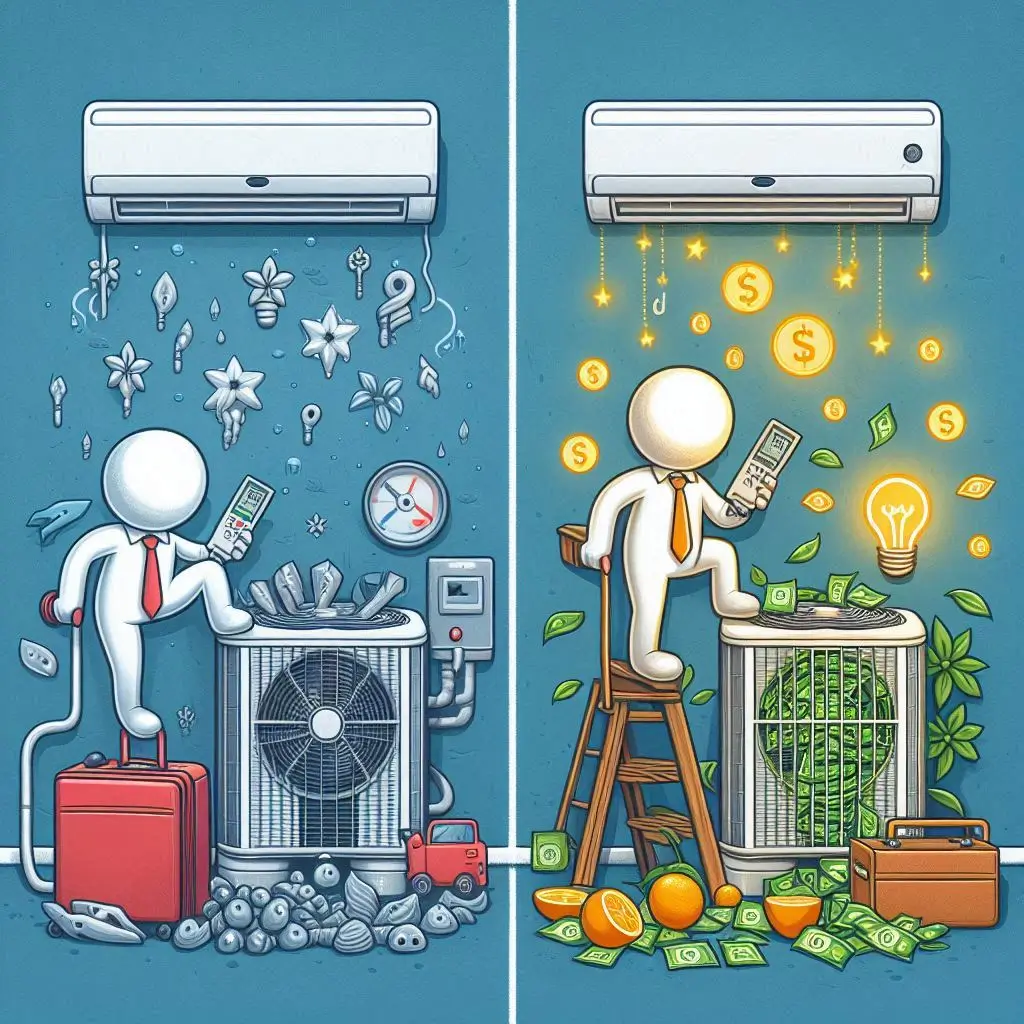What Is an Air Conditioner Tune Up?
An Air Conditioner Tune Up is a thorough maintenance service performed on your AC unit to ensure it operates at peak efficiency. It involves a series of diagnostic checks, adjustments, and cleaning tasks aimed at identifying potential issues before they escalate into costly repairs. This proactive service not only improves the performance of your air conditioner but also helps extend its lifespan, reduce energy consumption, and improve indoor air quality.
An AC tune-up is often recommended at least once a year to keep the system running smoothly and to avoid breakdowns, especially before the hot summer months when your air conditioning unit is used the most. The process is carried out by HVAC professionals who have the necessary tools and expertise to inspect, clean, and repair your system as needed.
Understanding the Basics of an AC Tune Up
An AC tune up involves a set of tasks designed to optimize the performance of your air conditioner. Here’s a breakdown of the essential components:
-
Filter Check and Replacement: Air filters can accumulate dirt and debris over time, obstructing airflow and reducing system efficiency. During an AC tune up, the technician will check the filter and replace it if necessary.
-
Coil Cleaning: Both the evaporator and condenser coils collect dirt, which reduces their ability to absorb and expel heat. Cleaning the coils is a crucial step in an AC tune up, as it prevents the system from working harder than it needs to.
-
Thermostat Calibration: The thermostat is calibrated to ensure the AC unit is cooling effectively. If the thermostat is faulty, it may result in inconsistent temperatures and higher energy bills.
-
Refrigerant Check: The refrigerant level is tested to ensure the system is operating at the correct level. Low refrigerant can reduce cooling efficiency and cause long-term damage to the compressor.
-
Drain Line Inspection: The condensate drain line is inspected and cleared of any blockages to prevent water damage and mold growth in the system.
-
Airflow Evaluation: Ensuring the airflow is unobstructed and optimal helps maintain the cooling efficiency of the unit. Clogged vents or ducts can severely reduce performance.
By addressing these elements during a tune-up, an AC system can run efficiently, lower energy costs, and extend its operational life.
Why Regular Tune Ups Are Essential for Your AC
Regular air conditioner tune-ups are essential for several reasons:
-
Prevent Expensive Repairs: A tune-up helps identify and resolve small issues before they turn into major problems. For example, catching a refrigerant leak early can save you from having to replace the compressor or other components. Preventative maintenance reduces the likelihood of costly repairs by up to 90%.
-
Extend Your Air Conditioner’s Lifespan: Just like a car, your AC unit performs better and lasts longer when properly maintained. Neglecting regular tune-ups can cause parts to wear out prematurely. A well-maintained unit can last anywhere from 15 to 20 years, while one that’s not regularly tuned may only last half as long.
-
Improve Energy Efficiency: A well-tuned air conditioner operates more efficiently, which can result in lower energy bills. A dirty filter, clogged coils, or low refrigerant levels can cause the system to overwork, using more energy to cool your home. Routine maintenance ensures the system runs at optimal efficiency, saving you money in the long run.
-
Enhanced Indoor Comfort: A well-maintained air conditioner ensures your home remains at the desired temperature and humidity levels. It helps in better airflow and cooling consistency, ensuring that every room remains comfortable throughout the season.
-
Preserve Indoor Air Quality: Over time, dust, dirt, and mold can build up in your AC system. Regular tune-ups help remove these contaminants, improving indoor air quality and reducing allergens, which is particularly important for families with asthma or allergies.
In summary, regular AC tune-ups are not just about preventing breakdowns but also about optimizing performance, extending lifespan, reducing energy costs, and maintaining a healthier home environment.
Key Benefits of an Air Conditioner Tune Up
An Air Conditioner Tune Up offers several important benefits that can help homeowners save money, increase comfort, and extend the life of their AC unit. Regular tune-ups are an essential aspect of home maintenance that ensure your air conditioner runs efficiently when you need it most. In this section, we will discuss three primary benefits of having your air conditioner regularly tuned up: preventing expensive repairs, extending the lifespan of your AC, and lowering your utility bills through enhanced performance.
Prevent Expensive Repairs with Regular AC Tune Ups
One of the most significant benefits of an air conditioner tune up is the prevention of expensive repairs. By scheduling routine maintenance, HVAC professionals can identify and fix minor issues before they escalate into costly problems. For instance, a simple issue like a clogged filter, if left unchecked, can cause the system to overheat, which could eventually lead to compressor failure, requiring a very expensive replacement.
Regular tune-ups help catch these small issues early, which not only saves you money on expensive repairs but also reduces the likelihood of your air conditioner breaking down during peak summer months when repairs are more costly and technicians are in higher demand.
Here’s how regular tune-ups can prevent expensive repairs:
- Cleaning and Replacing Filters: A clogged or dirty filter restricts airflow, causing your system to work harder. This can lead to overheating and malfunctioning of various components. A tune-up ensures that filters are clean and properly replaced.
- Checking Refrigerant Levels: Low refrigerant levels can put strain on the compressor, leading to premature failure. Technicians check and replenish refrigerant levels during a tune-up to prevent these issues.
- Inspecting Electrical Components: Over time, electrical connections can become loose or worn, which may lead to short circuits or even fires. During a tune-up, an HVAC pro will inspect and tighten electrical connections.
By taking preventive measures, you’ll minimize the risk of costly repairs and keep your system running smoothly for years.
Extend Your AC’s Lifespan through Consistent Maintenance
Just like any mechanical system, your air conditioner requires consistent maintenance to perform at its best over the long term. Regular AC tune-ups help extend the lifespan of your unit by addressing wear and tear, preventing major breakdowns, and keeping the system running smoothly.
A well-maintained air conditioner can last anywhere from 15 to 20 years, whereas one that is neglected might only last 8-10 years, leading to early replacement costs. During a tune-up, HVAC professionals ensure that all parts are lubricated, clean, and in proper working order. This reduces stress on the system and prevents parts from wearing out too quickly.
Here are a few maintenance tasks performed during a tune-up that can help extend the lifespan of your AC:
- Cleaning the Coils: Dirty coils can cause the system to overheat and damage the compressor. Regular cleaning ensures efficient heat exchange.
- Lubricating Moving Parts: The blower motor and fan have many moving parts that can wear out quickly if not lubricated. Regular lubrication helps reduce friction and wear.
- Thermostat Calibration: Ensuring that the thermostat is working correctly prevents overworking the unit.
Incorporating these small maintenance tasks into a yearly routine will ensure that your AC operates at peak performance and lasts for many years, reducing the need for costly replacements.
Lower Utility Bills with Efficient Air Conditioner Performance
An often-overlooked benefit of regular AC tune-ups is the impact they have on your utility bills. When your air conditioner is running efficiently, it uses less energy to cool your home, which translates into lower electricity costs. On the other hand, when an air conditioner is not properly maintained, it has to work harder to achieve the desired temperature, consuming more energy and increasing your monthly utility expenses.
Here are a few ways regular tune-ups can help lower your utility bills:
- Improved Energy Efficiency: A clean system with well-maintained components, such as coils and filters, runs more efficiently, consuming less energy.
- Optimal Refrigerant Levels: Low refrigerant can cause your system to work harder, leading to increased energy consumption. During a tune-up, refrigerant levels are checked and topped off to ensure efficient cooling.
- Proper Insulation and Seals: HVAC professionals will inspect the seals around doors and windows to prevent cool air from escaping, reducing the strain on your AC unit and keeping energy costs down.
By keeping your air conditioner well-maintained, you’ll enjoy a more energy-efficient cooling system, helping you lower your utility bills and minimize energy waste.
How to Perform a DIY Air Conditioner Tune Up
Performing a DIY air conditioner tune up can help you maintain your system’s efficiency, reduce energy bills, and extend its lifespan. With just a few basic tools and safety precautions, you can complete essential maintenance tasks and keep your AC running smoothly. While professional servicing is recommended yearly, performing a DIY tune-up between professional visits can significantly improve your unit’s performance. Here are five critical steps you can follow to maintain your air conditioner efficiently.
Step 1: Change Air Filters for Better Airflow
Changing your air filters is one of the simplest and most effective steps in a DIY AC tune-up. A clogged or dirty filter restricts airflow, making your air conditioner work harder to circulate cool air throughout your home. This not only lowers efficiency but can also lead to overheating and even damage to internal components. Replacing or cleaning the filter regularly ensures better airflow and reduces the strain on your system.
How to do it:
- Turn off your air conditioner and remove the old filter from the unit.
- If it’s reusable, clean it by rinsing it with water and letting it dry before reinstalling.
- If it’s a disposable filter, purchase the correct size and replace it.
- Make sure to replace or clean the filter at least every 1-3 months, depending on usage and the type of filter.
Changing your filter will not only improve airflow but also enhance the air quality inside your home by removing dust and allergens.
Step 2: Examine the Drain Line to Prevent Clogs
The drain line in your air conditioner helps remove excess moisture and condensation. If the line becomes clogged, water can back up into the unit, leading to water damage and potential system failure. Regularly checking the drain line during your DIY AC tune-up helps prevent clogs and ensures the system is working properly.
How to do it:
- Turn off your air conditioner to avoid any electrical hazards.
- Locate the drain line, which is typically a small pipe running from your AC unit to the outside of your home.
- Use a wet/dry vacuum to suck out any debris or algae buildup from the line.
- If the clog is stubborn, use a small amount of diluted bleach or vinegar to clear any blockages.
- Ensure that the drain line is free-flowing to prevent water buildup.
A clean drain line prevents water damage and improves the efficiency of your air conditioner.
Step 3: Clean the Condenser Coils for Maximum Efficiency
The condenser coils on your air conditioner release the heat absorbed from inside your home. Over time, dirt, dust, and debris can accumulate on the coils, reducing their ability to release heat effectively. This causes your air conditioner to work harder, leading to increased energy consumption and potentially causing system failure. Cleaning the condenser coils during a DIY tune-up restores efficiency and prolongs the life of your unit.
How to do it:
- Turn off the power to your air conditioner to avoid electrical hazards.
- Locate the condenser coils, which are typically found on the outdoor unit of your AC.
- Use a soft brush or a coil cleaner to gently remove any debris, dust, or dirt from the coils.
- For stubborn dirt, use a coil cleaner specifically designed for this purpose.
- After cleaning, rinse the coils gently with a hose to remove any remaining debris.
A clean set of condenser coils will improve the efficiency of heat transfer, keeping your air conditioner working at its best.
Step 4: Inspect the Thermostat for Proper Functioning
Your thermostat controls the temperature in your home and communicates with your air conditioner to maintain that temperature. Over time, it may become inaccurate or lose its calibration, which can cause the AC to work harder or maintain an incorrect temperature. Inspecting and calibrating your thermostat during a DIY air conditioner tune-up can improve your unit’s efficiency and comfort levels.
How to do it:
- Turn off the air conditioner and the thermostat.
- Remove the thermostat cover to access the internal components.
- Check for any dust or dirt buildup inside the thermostat, and clean it with a soft brush.
- Ensure that the thermostat is correctly calibrated by comparing it to a reliable thermometer placed nearby.
- If the temperature reading is off, consult the thermostat’s manual for calibration instructions.
By ensuring that your thermostat is working properly, you’ll avoid unnecessary energy consumption and maintain consistent comfort levels in your home.
Step 5: Check and Straighten Coil Fins
The coil fins on your air conditioner help the coils dissipate heat, but they can bend or become clogged with debris, which hampers the efficiency of your unit. Straightening and cleaning the coil fins during a DIY tune-up will improve airflow and prevent the coils from getting damaged or clogged.
How to do it:
- Turn off the power to the unit to prevent electrical accidents.
- Locate the coil fins, which are found on the evaporator and condenser coils.
- Use a fin comb or a similar tool to gently straighten any bent fins.
- Clean the fins with a brush to remove dirt or debris that might be clogging the spaces between the fins.
- Check the alignment of the fins and ensure there is no obstruction that could restrict airflow.
Straightening the fins will ensure that your air conditioner operates at peak efficiency and helps avoid costly repairs down the road.
Professional Air Conditioner Tune Up: What Does It Include?
A professional air conditioner tune up is a thorough, expert maintenance service designed to enhance your AC’s performance, efficiency, and longevity. While DIY tune-ups help keep your air conditioner running, having a certified HVAC professional conduct a detailed inspection and maintenance is crucial for ensuring optimal operation. These professionals have the tools and expertise to address all aspects of your AC system, keeping it in top shape for years. Here’s a breakdown of what you can expect during a professional AC tune-up.
Thermostat Calibration and Evaluation
One of the first things an HVAC technician will evaluate during a professional AC tune-up is the thermostat. The thermostat plays a critical role in maintaining a comfortable indoor temperature by regulating your air conditioner’s operation. Over time, thermostats can become inaccurate, leading to inconsistent temperatures and unnecessary energy consumption.
What is done:
- The technician checks the thermostat’s calibration by comparing the reading to an accurate thermometer placed in the same room.
- If any discrepancies are found, the thermostat is recalibrated to ensure it matches the actual room temperature.
- The technician may also clean the thermostat’s interior to remove any dust or dirt that might be affecting its performance.
By calibrating your thermostat properly, the technician helps ensure that your air conditioner is only working when it needs to, thus improving energy efficiency and comfort.
Inspecting the Evaporator Coil, AC Cabinet, and Blower Motor
During a professional AC tune-up, the evaporator coil, AC cabinet, and blower motor are thoroughly inspected to ensure they are clean and functioning properly. These components play essential roles in the cooling process. If they are not in optimal condition, they can decrease the system’s efficiency and lead to costly repairs.
What is done:
- The evaporator coil is checked for dirt and debris buildup, which can impair its ability to absorb heat.
- The AC cabinet is inspected for any signs of wear, rust, or damage.
- The blower motor is examined to ensure that it’s operating smoothly, with proper lubrication and no issues with the fan or motor bearings.
These checks ensure that your air conditioner continues to cool your home efficiently and that there is no premature wear on key components.
Examining the AC Drain Pan and Evaluating Airflow
The drain pan and airflow are crucial to your air conditioner’s ability to remove moisture and cool effectively. If the drain pan becomes clogged, it can cause water damage or mold growth, while poor airflow can make your system work harder than necessary.
What is done:
- The technician inspects the drain pan for any debris or standing water, which could indicate a clog or leak.
- The airflow throughout the system is evaluated by measuring the air coming from the vents. The technician ensures that the airflow is balanced and strong, checking the condition of the ducts and vents.
- If airflow is weak or inconsistent, the technician may recommend repairs or duct cleaning to improve circulation.
By evaluating the drain pan and airflow, the technician prevents issues like water damage or inefficient cooling that could lead to higher energy bills and premature system failure.
Testing the Refrigerant Charge and Outdoor Condenser Unit
A key component of your air conditioner’s cooling efficiency is the refrigerant. During a professional air conditioner tune-up, the technician will check the refrigerant charge to ensure that it is at the correct level. If the refrigerant is low, your system will have to work harder to cool the air, leading to higher energy consumption and potential damage to the compressor.
What is done:
- The technician checks the refrigerant charge using special gauges and compares it to the manufacturer’s specifications.
- If the refrigerant is low, they will check for leaks and either repair the leak or recharge the system with the correct amount of refrigerant.
- The outdoor condenser unit is also tested to ensure it is operating efficiently. The technician checks for any signs of wear or damage, such as corroded fins or clogged condenser coils.
Ensuring the correct refrigerant levels and a functioning condenser unit helps your air conditioner cool more effectively and avoids the potential for costly repairs.
Cleaning the Outdoor AC Condenser for Peak Performance
The outdoor condenser unit plays a vital role in the cooling process by releasing the heat absorbed from inside your home. Over time, dirt, debris, and environmental elements can clog the condenser unit, leading to reduced cooling efficiency. A professional air conditioner tune-up will include a thorough cleaning of the outdoor condenser unit to keep it functioning at its best.
What is done:
- The technician turns off the unit and removes any visible debris or dirt from around the outdoor condenser.
- The condenser coils are carefully cleaned with a soft brush or coil cleaner to remove dirt and grime that could block airflow.
- If necessary, the technician will straighten any bent coil fins that may impede airflow.
By cleaning the condenser, the technician ensures that your AC can expel heat more effectively, improving the system’s efficiency and extending its lifespan.
Why Professional AC Tune Ups Are Important
A professional air conditioner tune-up is an essential service for maintaining the performance, energy efficiency, and longevity of your air conditioning system. While regular maintenance can be done through DIY tasks, a professional tune-up provides a deeper level of inspection and care that ensures your unit runs optimally. This service not only improves your AC’s performance but also helps prevent unexpected breakdowns, reduces energy bills, and extends the life of your equipment.
Let’s explore why professional AC tune-ups are so crucial for homeowners looking to maximize their air conditioner’s efficiency and avoid costly repairs.
Ensuring Optimal Performance and Preventing Breakdowns
One of the primary reasons for getting a professional AC tune-up is to ensure optimal performance. Over time, components within the air conditioning system, such as coils, motors, and refrigerant, can deteriorate due to dirt buildup, wear and tear, or minor faults that may go unnoticed. A professional technician conducts a thorough inspection, identifying and addressing these issues before they escalate into significant problems.
What the technician does:
- Checks and cleans the evaporator coil and condenser coils, removing debris that may hinder heat transfer.
- Evaluates the refrigerant levels and ensures they are within the manufacturer’s specified range.
- Inspects and lubricates the moving parts, including the blower motor, to prevent friction and reduce wear.
By performing these tasks, the technician ensures that all components are functioning correctly, reducing the likelihood of unexpected breakdowns during peak usage periods, such as the summer months.
Improving Energy Efficiency and Lowering Utility Costs
A professional AC tune-up also plays a significant role in improving the energy efficiency of your air conditioner. When an AC unit is not properly maintained, it can consume more energy to cool your home, leading to higher utility costs. By having your air conditioner tuned up regularly, you can ensure it’s running at peak efficiency, which can save you money in the long run.
What the technician does:
- Cleans and checks the condenser and evaporator coils, ensuring that they can absorb and release heat efficiently.
- Inspects the thermostat to ensure it is reading accurately and adjusting the temperature correctly.
- Ensures proper airflow by cleaning the air filters, ducts, and vents to prevent blockages that could force the system to work harder.
These maintenance steps help your air conditioner use less energy while providing the same level of cooling, resulting in lower utility bills.
Extending the Lifespan of Your Air Conditioning Unit
An air conditioner is a significant investment, and you want to get the most out of it. A professional AC tune-up can extend the lifespan of your unit by identifying and correcting minor issues before they lead to more expensive repairs or premature failure. Regular tune-ups can help your AC run smoothly for years, delaying the need for a costly replacement.
What the technician does:
- Checks for any signs of wear, such as rust or corrosion on components like the coils and condenser unit.
- Inspects the blower motor and lubricates the moving parts to reduce friction and prevent premature motor failure.
- Replaces air filters that are clogged or damaged to maintain proper airflow and reduce strain on the system.
By addressing these issues early, you can extend the life of your AC unit and protect your investment.
Why are Professional AC Tune-Ups Necessary?
Q: Why is a professional air conditioner tune-up necessary?
A professional AC tune-up is important because it helps ensure your air conditioner is functioning at peak efficiency, prevents potential breakdowns, and extends the lifespan of the system. Technicians perform thorough inspections and maintenance tasks that you might not be able to do yourself, identifying and fixing issues before they turn into costly repairs. Without regular tune-ups, your AC unit may operate inefficiently, leading to higher energy bills, reduced comfort, and early system failure.
How Often Should I Schedule an AC Tune-Up?
Q: How often should I schedule an air conditioner tune-up?
It’s recommended to have a professional AC tune-up at least once a year. Ideally, schedule the service before the start of the cooling season (spring) to ensure your air conditioner is ready for high demand. This pre-season maintenance helps address any minor issues and ensures your system is running efficiently when you need it the most.
If your AC unit is older or runs frequently, you might consider scheduling two tune-ups per year: one before the cooling season and another before the heating season if you have a combined HVAC system.
What Does an Air Conditioner Tune-Up Include?
Q: What exactly is included in an air conditioner tune-up?
A professional air conditioner tune-up involves several steps to ensure the system runs smoothly and efficiently. These include:
- Thermostat Check and Calibration: Ensuring accurate temperature readings.
- Inspection and Cleaning of the Coils: The evaporator and condenser coils are cleaned to remove debris and dirt.
- Air Filter Replacement: Replacing clogged or dirty air filters to maintain proper airflow.
- Lubricating Moving Parts: Lubricating the fan and motor to reduce friction and prevent wear.
- Drain Line Inspection: Checking the drainage system for clogs to prevent water damage.
- Refrigerant Check: Testing the refrigerant levels and ensuring there are no leaks.
- Blower Motor Inspection: Ensuring it is working efficiently and circulating air properly.
These services work together to improve the efficiency of the unit, extend its lifespan, and reduce the chances of a breakdown.
Can I Perform an AC Tune-Up Myself?
Q: Can I perform an AC tune-up myself, or should I hire a professional?
While you can handle some basic maintenance tasks like changing the air filter or cleaning the condenser coils, a full AC tune-up is best left to professionals. They have the tools, knowledge, and expertise to check the system thoroughly, identify hidden issues, and ensure everything is working correctly. Trying to handle complex tasks such as refrigerant checking or inspecting the blower motor could lead to safety hazards or cause further damage to the system.
What Happens If I Skip an AC Tune-Up?
Q: What happens if I skip an AC tune-up?
Skipping an AC tune-up can result in decreased system efficiency, higher energy bills, and a greater risk of unexpected breakdowns. Without regular inspections, minor issues may go unnoticed and worsen, leading to costly repairs or even system failure. Additionally, your AC unit may wear out more quickly, reducing its lifespan and forcing you to replace it sooner than expected.
Regular tune-ups are crucial to maintaining comfort and avoiding inconvenient breakdowns, especially during the hottest months.
How Can an AC Tune-Up Save Me Money?
Q: How can an AC tune-up save me money?
An AC tune-up can save you money by improving the system’s energy efficiency, which helps reduce your utility bills. During a tune-up, the technician will clean the coils, check the refrigerant levels, and make sure all moving parts are lubricated. This helps the unit run more efficiently, using less energy to cool your home. Additionally, by catching minor issues early, you avoid costly repairs that could arise from neglecting maintenance.
By maintaining optimal performance, you can also extend the life of your system, delaying the need for an expensive replacement.
Conclusion:
In conclusion, regular air conditioner tune-ups are essential for maintaining the efficiency, longevity, and performance of your HVAC system. Whether you choose to perform a DIY tune-up or hire a professional, investing in this crucial maintenance task can help you avoid expensive repairs, lower your energy bills, and extend the lifespan of your air conditioner. By prioritizing regular tune-ups, you ensure that your system is ready to handle the demands of the hottest months, providing you with consistent comfort all year round. Don’t wait for problems to arise—schedule your air conditioner tune-up today to enjoy the benefits of a well-maintained, efficient system.



